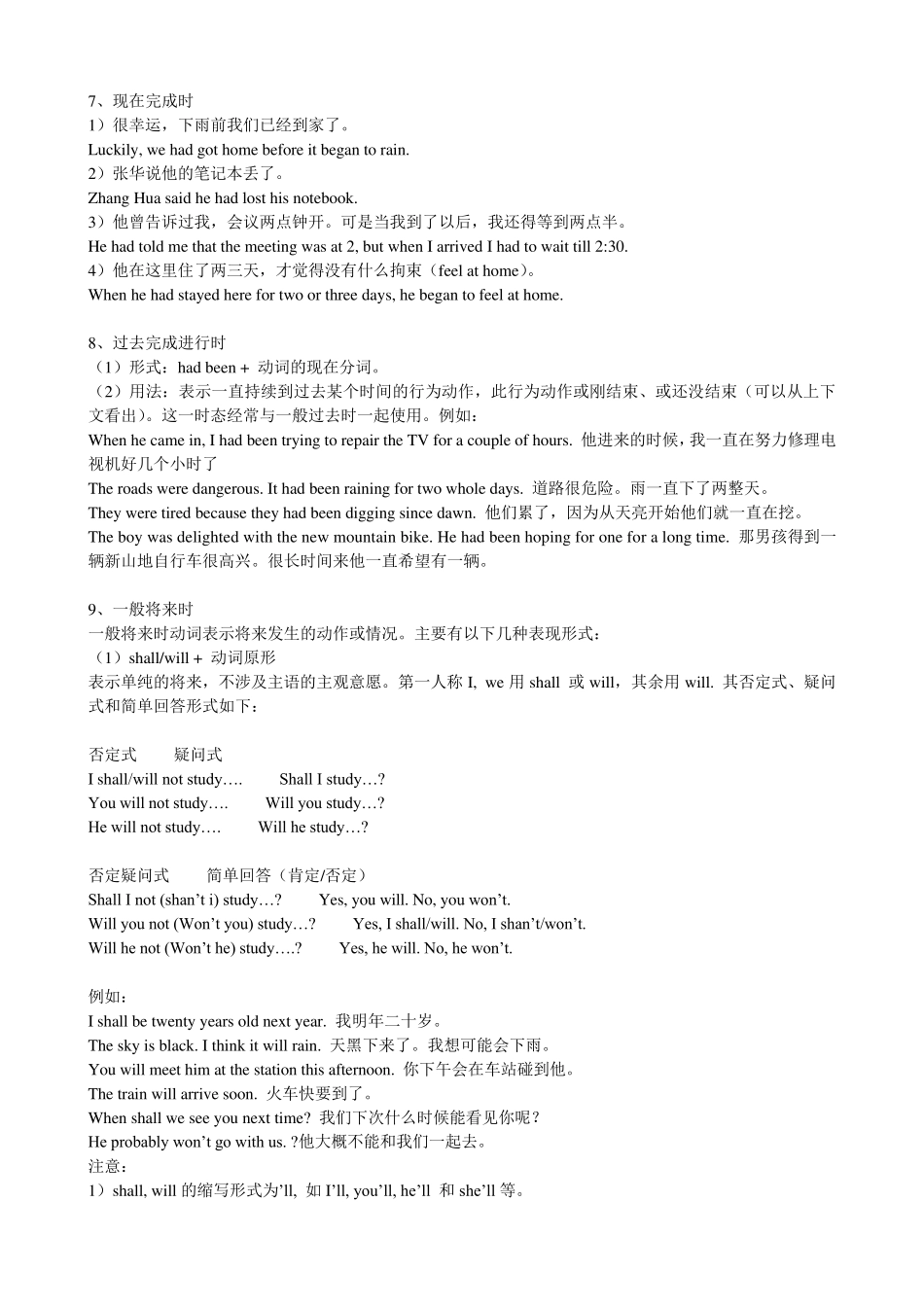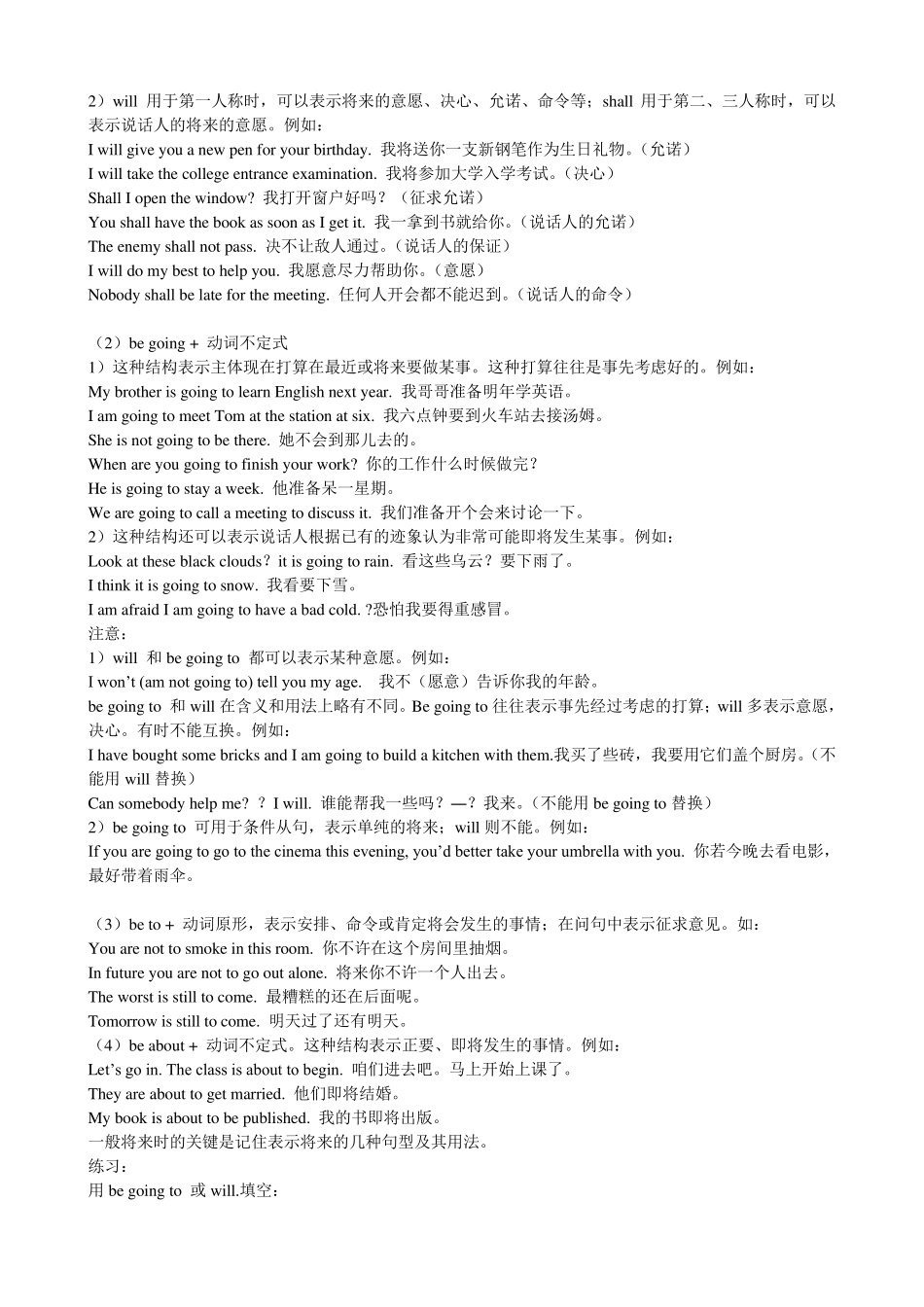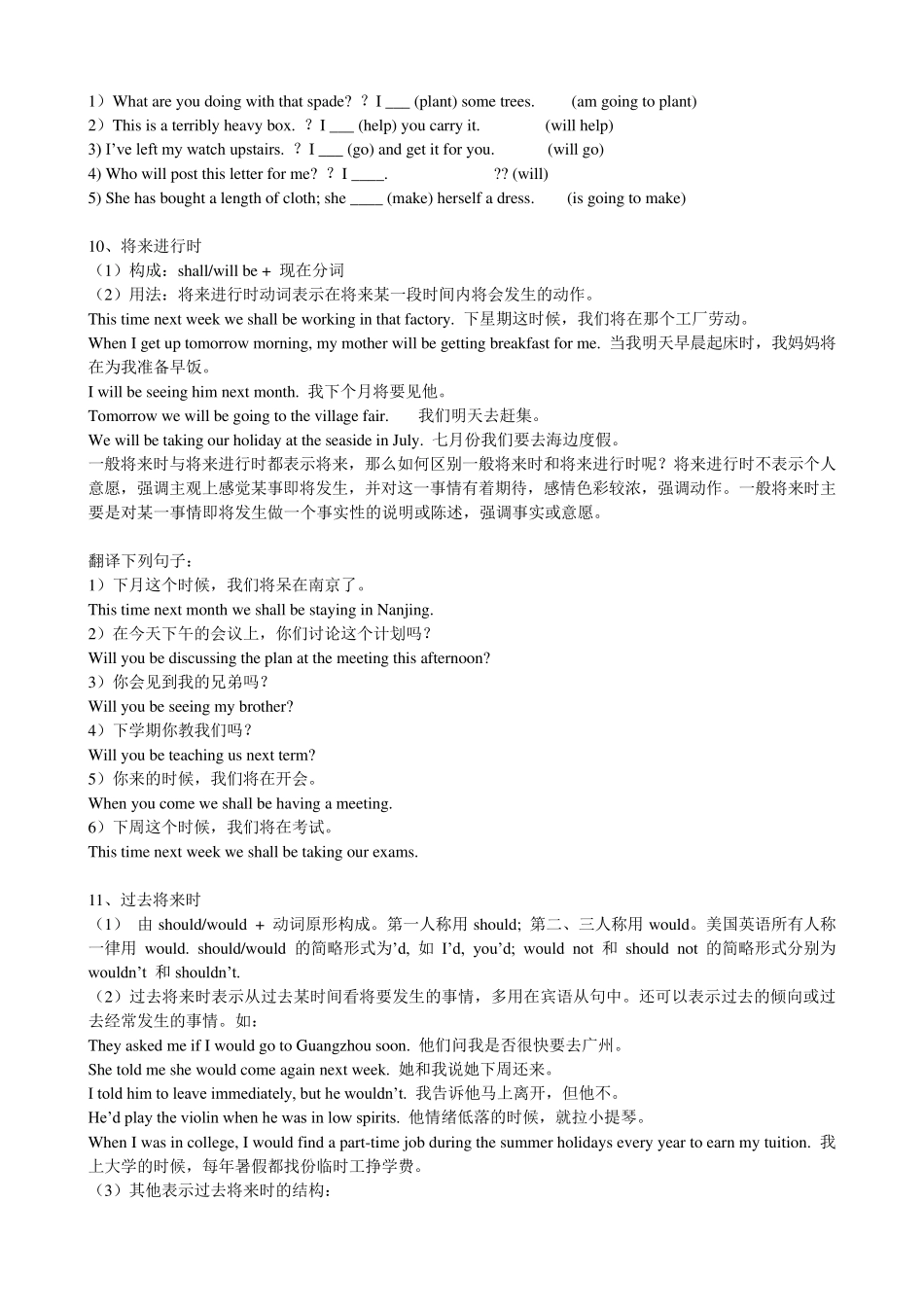7、现在完成时 1)很幸运,下雨前我们已经到家了。 Luckily, we had got home before it began to rain. 2)张华说他的笔记本丢了。 Zhang Hua said he had lost his notebook. 3)他曾告诉过我,会议两点钟开。可是当我到了以后,我还得等到两点半。 He had told me that the meeting was at 2, but when I arrived I had to wait till 2:30. 4)他在这里住了两三天,才觉得没有什么拘束(feel at home)。 When he had stayed here for two or three days, he began to feel at home. 8、过去完成进行时 (1)形式:had been + 动词的现在分词。 (2)用法:表示一直持续到过去某个时间的行为动作,此行为动作或刚结束、或还没结束(可以从上下文看出)。这一时态经常与一般过去时一起使用。例如: When he came in, I had been trying to repair the TV for a couple of hours. 他进来的时候,我一直在努力修理电视机好几个小时了 The roads were dangerous. It had been raining for two whole days. 道路很危险。雨一直下了两整天。 They were tired because they had been digging since dawn. 他们累了,因为从天亮开始他们就一直在挖。 The boy was delighted with the new mountain bike. He had been hoping for one for a long time. 那男孩得到一辆新山地自行车很高兴。很长时间来他一直希望有一辆。 9、一般将来时 一般将来时动词表示将来发生的动作或情况。主要有以下几种表现形式: (1)shall/will + 动词原形 表示单纯的将来,不涉及主语的主观意愿。第一人称 I, we 用 shall 或 will,其余用 will. 其否定式、疑问式和简单回答形式如下: 否定式 疑问式 I shall/will not study…. Shall I study…? You will not study…. Will you study…? He will not study…. Will he study…? 否定疑问式 简单回答(肯定/否定) Shall I not (shan’t i) study…? Yes, you will. No, you won’t. Will you not (Won’t you) study…? Yes, I shall/will. No, I shan’t/won’t. Will he not (Won’t he) study….? Yes, he will. No, he won’t. 例如: I shall be twenty years old next year. 我明年二十岁...


